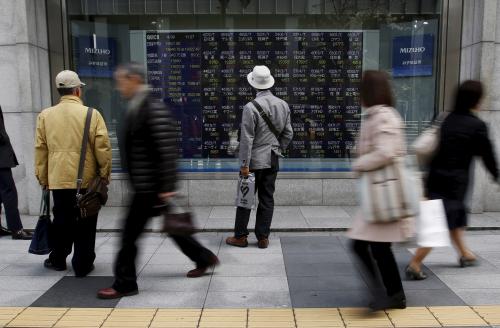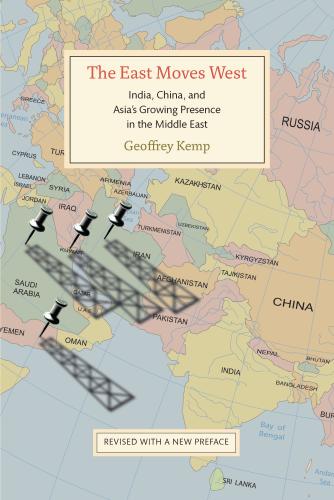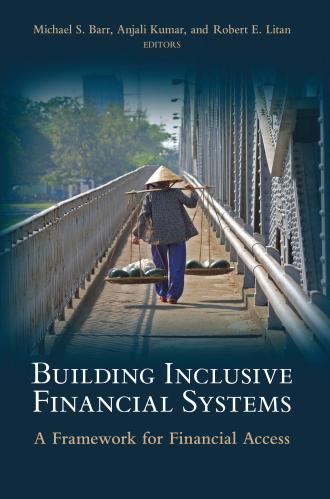The race was tough, but U.S. President Barack Obama has won re-election. The question now, for the United States and the world, is what will he do with a fresh four-year term?
To win re-election with a still-weak economy and unemployment close to 8% was not easy. Many leaders – Nicolas Sarkozy, Gordon Brown, and José Luis Rodríguez Zapatero come to mind – have been swept away by economic discontent in recent years. Although the financial disaster erupted on George W. Bush’s watch, after eight years of a Republican presidency, Obama had to carry the burden of an anemic recovery.
Obama won not only because of his extraordinary personal resilience, but also because a sufficient number of middle-class voters, while unhappy with the pace of economic progress, sensed that an Obama presidency would help them more than the policies championed by his Republican challenger, Mitt Romney, which were perceived as tilted to the affluent. Moreover, America’s ongoing demographic transformation makes it harder for candidates who are unable to reach out strongly to Latinos and other minority communities – something that Romney singularly failed to do – to carry the country.
Some aspects of the campaign, particularly the amount of money spent and its negative tone, struck many observers as objectionable. But the competitiveness of American democracy – the fact that an alternative always exists, and that those in power have to fight hard to stay there – was on admirable display for the whole world to see.
Obama will embark on his second term with the global economy at a crossroads. In the United States, the uneven and weak recovery has been sustained by extraordinarily expansive monetary policies and ongoing large fiscal deficits. While corporate coffers hold mountains of cash, private investment stagnates. In Japan, solid economic performance remains elusive, while prime ministers succeed each other at a breathtaking pace.
Likewise, Europe is on life support, thanks to European Central Bank President Mario Draghi’s astute maneuvering and promises of unlimited intervention in sovereign-debt markets. But unemployment is at its highest in decades and growth has essentially stalled, even in Germany, while the troubled southern economies are mired in deep recession. The situation in Greece, moreover, has become socially unsustainable; Greece is small, but a total collapse there could have very negative financial and psychological effects elsewhere.
The world’s emerging-market economies are in better shape; but, while their underlying trend growth in potential output is much higher than that of the advanced economies, there is no cyclical de-coupling. The world economy is an interdependent whole: trouble in any important part of it is transmitted globally. That is true beyond the purview of narrowly macroeconomic problems as well: for example, the need to address climate change can no longer be ignored.
The United States cannot determine the world economy’s future on its own, but the course taken by America nonetheless has huge global importance, given that it remains the largest economy and retains considerable influence in venues such as the International Monetary Fund, the World Bank, and the G-20. American ideas continue to affect the policy debate worldwide.
So, what should Obama’s top economic-policy priorities be in his second term? Despite the difficulties facing the global economy, there are huge investible resources in the United States, China, Germany, and elsewhere. While there are climate and resource constraints, we are still at the beginning of a technological revolution that holds tremendous potential for higher productivity and greater prosperity, along with challenging implications for labor and employment.
But sustainable economic growth requires that those with investible resources actually invest them. And that will not happen unless and until a broad-based recovery of the middle- and lower-income groups in advanced economies, including the United States, delivers the prolonged rebound in demand for which investors are waiting.
There are plenty of profits to be made – actual taxes on capital are not too high, and cheap finance is available to the corporate sector. But the concentration of income at the top – more than 90% of the gains from U.S. economic growth in 2011, for example, went to the top 1% – is constraining broad-based recovery and leaving macroeconomic policy caught between the need for continued “stimulus” and the dangers of growing public debt and asset bubbles inflated by record-low interest rates.
In other words, a more balanced income distribution is not only a social or ethical issue; it is crucial for macroeconomic and, indeed, long-term corporate success. This is vital for many countries, above all the United States and China.
Then there is the pressing need – in the United States and globally – for education and appropriate skill formation. Without the skills required by new and incipient technologies, too many workers will simply be unemployable. A key benefit of prioritizing broad-based quality education is that it also helps to solve the income-distribution problem.
Finally, there is the need for effective international cooperation. China’s current-account surplus has declined, but now northern Europe runs a $500 billion surplus, while demand in southern Europe is collapsing and the US is running a deficit that is close to $500 billion. The longer-term challenge of climate change and extreme weather patterns also requires global cooperation and a post-election shift toward much stronger U.S. engagement, which could unleash a multifaceted clean-energy revolution, fueling large job-creating investments and a new cycle of growth.
After America’s long, hard-fought election campaign, it is time for comprehensive policy reforms. One hopes that the U.S. Congress will recognize this as well, leading to support for measures that could help hundreds of millions of people in the United States and around the world.
The Brookings Institution is committed to quality, independence, and impact.
We are supported by a diverse array of funders. In line with our values and policies, each Brookings publication represents the sole views of its author(s).









Commentary
Op-edThe Second Coming of Barack Obama
November 7, 2012